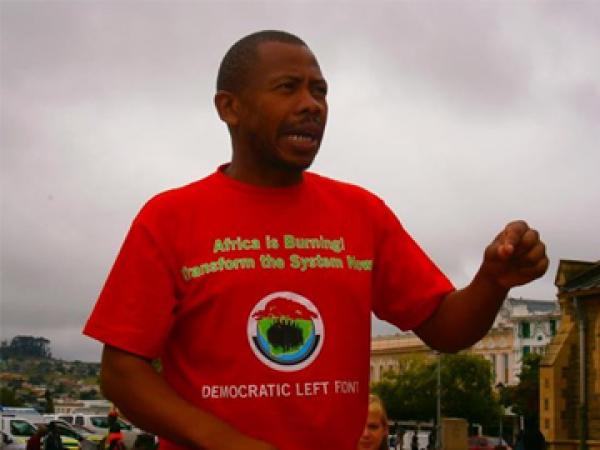Malema should learn black consciousness is a philosophy of love not hatred

Che Guevara famously said that: “At the risk of seeming ridiculous, let me say that a true revolutionary is guided by great feelings of love.” Black Consciousness itself is guided by the feelings of love; it is a philosophy of love. This was central to some of the philosophy on which the movement was founded such as the work of people like James Cone and Paulo Freire.
Centuries of exploitation and oppression by white supremacy created a black person who was not aware that he or she is a person.
Black Consciousness seeks to infuse love and hope to make every black person aware that they are human beings. Black Consciousness is a way of life and an attitude of mind that is a positive call to emanate from the black world to restore love and identity.
Black Consciousness is based on love for all humanity. Of course Black Consciousness understands that along with love always comes the courage to take a firm stand against all forms of oppression. But a firm response to oppression motivated by love is very different to a politics motivated by hate.
Recently, Julius Malema addressing a rally in Marikana, said that “Zuma is not sick, he is a troubled man. We do not wish him well, we wish him long suffering”.
This came from a man who only a few years back declared that he was prepared to kill and die for Jacob Zuma. This was while Zuma was facing corruption and rape charges. We have to ask, what kind of person would say that they are willing to kill for someone like Zuma? We have to ask, what kind of political judgment such a person has?
The majority of the Economic Freedom Fighter’s (EFF) membership consists of young people. If we are planting the seeds of hatred and bitterness in them, we are running a serious risk of creating a brutal and violent society in the name of revolution.
A real revolutionary must always be very careful to avoid becoming like the oppressor. In our criticism of Zuma and the ANC government we cannot resort to hatred. There are times when people have no choice but to take up arms to defend the struggle for a better world. But when these times come real, revolutionaries do not use war and hatred as an ideology, but rather to defend their communities, and the struggle. It must always be the last resort.
Zuma’s palace in Nkandla is a clear demonstration of his lack of concern for his fellow citizens when funds were not spent on public housing but to build his personal palace. Zuma appears to be part and parcel of the culture of greed and corruption that is eating away at our society. After Marikana, Deputy President Cyril Ramaphosa seems no better. Police Commissioner Ria Phiyega’s response to the massacre was as cold-hearted as Jimmy Kruger’s remark on the news of Steve Biko’s death, when he said, “It leaves me cold.”
Fanon wrote: “Imperialism leaves behind germs of rot which we must clinically detect and remove from our land but from our minds as well.”
In our actions and thoughts, when we fight for freedom, we must not run the risk of becoming like our oppressors.
Che Guevara writes “The life of a single human being is worth a million times more than all the property of the richest man on earth. … Far more important than a good remuneration is the pride of serving one’s neighbor. Much more definitive and much more lasting than all the gold that one can accumulate is the gratitude of a people”.
This makes our struggle a struggle for the awakening of humankind. It is necessarily characterized by love, respect and dignity for every human being.
Yes, when we need to confront oppression directly, we must do so. But we must never become its mirror image. We must always remember that we stand for a better world.
We must commend the EFF for their willingness to speak the truth to power in parliament in support of the Marikana miners in spite of the risk of being ridiculed and sanctioned. Such actions demonstrate signs of a political party that is on the side of the poor and the working class.
However, if the EFF is committed to emancipatory politics, internal democracy and the politics of dignity for poor people, the party’s discourse should not be one that preaches violence and hatred.
The love of humanity that shone so brightly in Steve Biko, and others like Fanon, Guevara and Freire, must be the foundation of our struggle. Even if it is successful in defeating one form of oppression, a politics of hatred can only result in new forms of oppression.
Ayanda Kota is the current organiser of Unemployed People’s Movement (UPM) and also an activist of the Democratic Left Front.
Support independent journalism
Donate using Payfast

Don't miss out on the latest news
We respect your privacy, and promise we won't spam you.

This article is licensed under a Creative Commons Attribution-NoDerivatives 4.0 International License.
